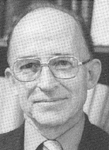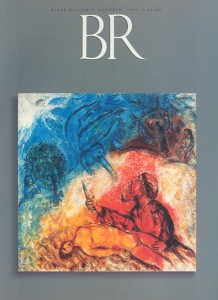The Future Is Now
The apostles were radically opposed to any church hierarchy.

During the month of November and again on the third Sunday of Advent, many Christian churches will use sections from the First Letter to the Thessalonians as their “Epistle for the Sunday.” This significant letter, hard to find tucked away among the shorter writings of the apostle Paul, is the earliest Christian writing in the New Testament. It is the first attempt to give advice to a Christian community in the form of a pastoral letter.
Paul preached in Thessalonica sometime during the spring or summer of 50 C.E., but he encountered hostility and had to leave prematurely. Acts 17:5–9 says that this hostility was inspired by members of the Jewish community, but Paul does not confirm that in his letter. He indicates, however, that his stay in Thessalonica was brief and beset by tribulations (1 Thessalonians 1:6), and he is worried lest the congregation he founded might not have survived (1 Thessalonians 3:5). Therefore Paul sent his fellow missionary Timothy to Thessalonica (1 Thessalonians 3:1–3); as soon as Timothy came back with good news (1 Thessalonians 3:6), he wrote the letter to the Thessalonians that is now in the New Testament.
Already a library member? Log in here.
Institution user? Log in with your IP address.

